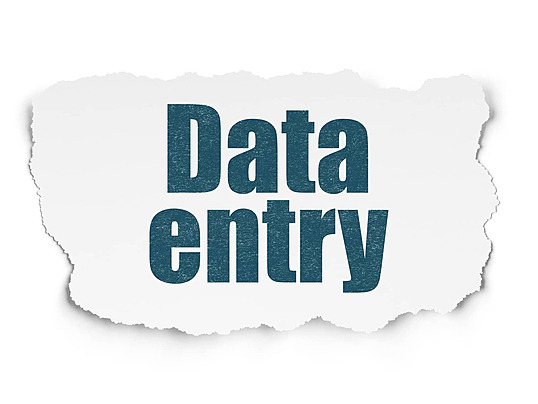The major duties of a data entry operator, sometimes referred to as a data entry clerk, are organizing and upholding efficient record keeping and entering different kinds of data into databases. Typically, this position calls for meticulous attention to detail as well as effective information management and handling skills. I’ll go over the main duties and positions that are often held by a data entry operator below:
Primary Accountabilities:
Accurately entering data from a variety of sources into the specified computer system or database.
Information can be entered into databases, spreadsheets, and other systems via keyboards or data recorders.
Data validation and verification
include evaluating output, fixing any inconsistencies, and reviewing data for flaws or errors.
ensuring data entry accuracy and cross-referencing entries with original source documents.
Data maintenance:
To keep the system operating efficiently, update the data and remove any files that aren’t needed.
regularly backing up data in accordance with the organization’s rules and regulations.
Protocol Compliance:
Adhering to security and data integrity guidelines.
maintaining information confidentially at all times.
Document management
involves inserting data into documents and then sorting, structuring, and storing them.
managing digital and physical files to facilitate archiving and quick retrieval.
Report Generation:
Producing reports and carrying out backup procedures as needed.
reviewing disparities in the data you received, asking for more information, or informing your supervisor of any data-related concerns.
Coordination and Communication:
Streamlining data input procedures by working with other teams, such as IT support, management, or certain departments.
answering inquiries from authorized members for information.
Proficiency with Software:
Utilizing word processing, spreadsheets, and database systems, among other software.
being familiar with the various data entry interface types and how to use them.
Technical Skills:
Updating computers, printers, and scanners—all equipment required in data entry.
resolving small-scale technical issues with data entering machinery.
Important Roles:
Record Keeper:
Taking on the role of keeper of significant records and information.
ensuring that all essential records are accurately stored and accessible when needed.
Basic Level Data Analyst:
Examining data for accuracy and consistency through basic analysis.
supplying precise data and reports to aid in decision-making.
Helping with administrative
duties including processing, copying, and filing documents is known as administrative support.
assisting other departments with efficient data management and access.
Supporting Quality Assurance:
Contributing to quality assurance by making sure the data entered satisfies the required requirements for accuracy and dependability.
making recommendations for enhancing the data entering procedure.
Required Skills:
Sharp focus on detail Quick typing speed
proficiency with Microsoft Office, especially with Excel
Effective communication abilities
Capabilities for organization
a basic knowledge of databases
Data entry operators play a critical role in guaranteeing accurate data entry, efficient processing, and upkeep, all of which enhance a business’s operational efficacy. They have to be dependable, thorough, and able to work in a hectic setting.
Would you like to start a Work with us?
If Your Are Interest In Our Program, You Can Join Now and Earn Money Everyday.






